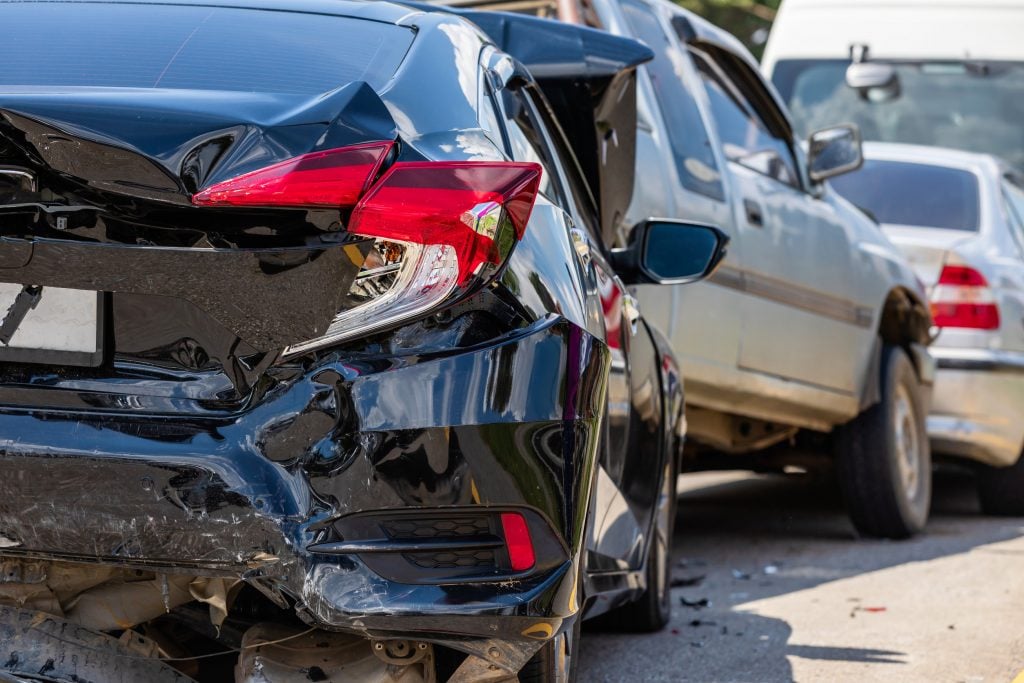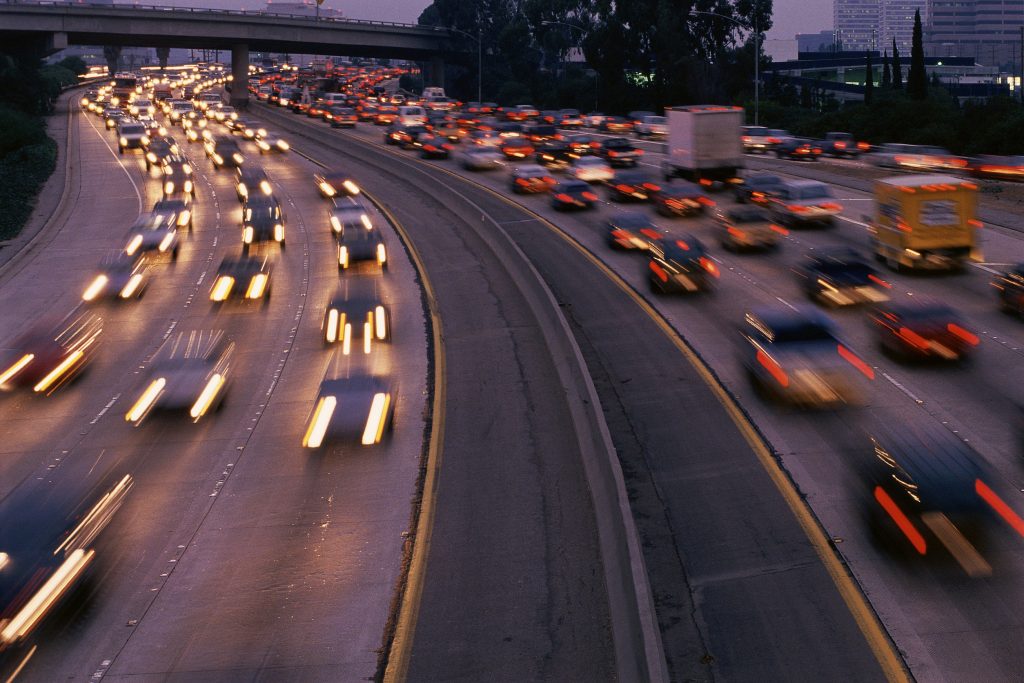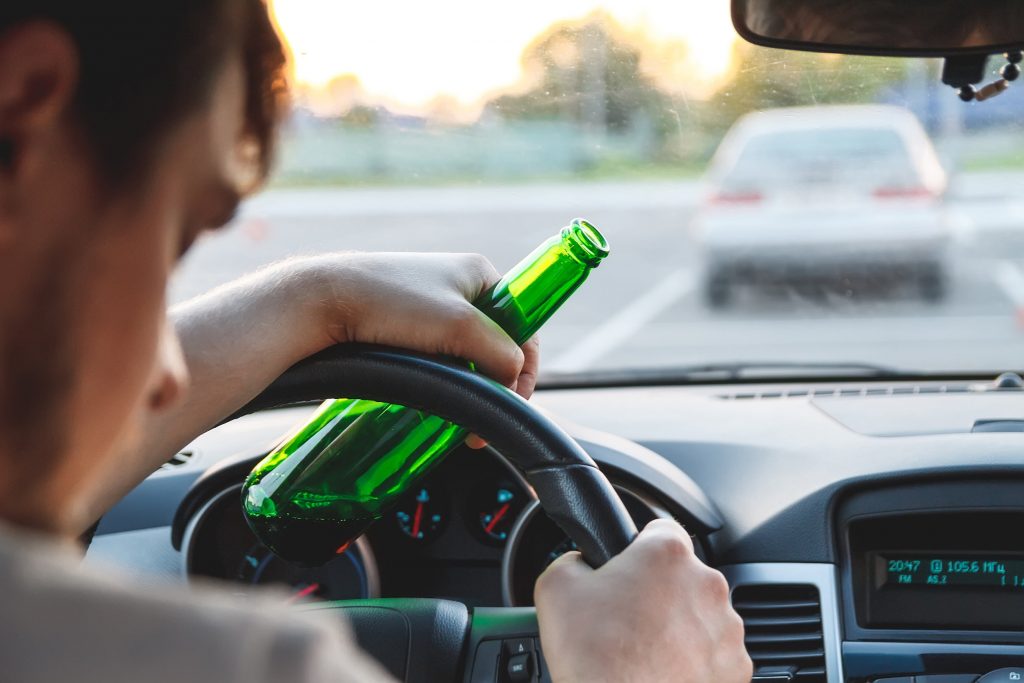
According to the National Highway Traffic Safety Administration (NHTSA), rear-end collisions are the most common kind of car accident in the United States. The agency found that 32.5% of all accidents reported in 2019 were rear-end collisions, amounting to nearly 2.2 million total crashes. Although many rear-end accidents are minor, some can result in extensive property damage, severe injuries, and even wrongful death.
So, why do so many of these accidents happen? In this blog, ER Injury Attorneys explains the top-five causes of rear-end crashes in Las Vegas—plus how you can obtain compensation if you or a loved one has been injured.
#1: Distracted Driving
Distracted driving is a major cause of rear-end collisions. According to a NHTSA study, approximately 87% of the rear-end crashes studied included some form of driver distraction. While many car accidents are caused by more overt distractions like texting and driving, personal grooming, or eating, you might be surprised at some of the more mundane distractions that can lead to a crash, like daydreaming or having a conversation with a passenger.
Even safe driving activities like scanning your rear view mirror or side mirrors can divert your attention from the road in front of you, increasing your risk of a rear-end collision. Moreover, the NHTSA found that driver gazes to the front roadway was not a guarantee that drivers are paying attention—40% of drivers involved in rear-end car accidents were looking through their front windshield at the time of the crash. Another 47% of drivers took no observable crash-avoidance measures like steering or braking, indicating that they were not at all aware of the imminent collision.
#2: Following Too Closely
Following the car in front of you too closely (also known as tailgating) is a major contributor to rear-end crashes. Sometimes drivers tailgate because of heavy traffic (i.e., trying to get through a busy intersection before the light changes) or because they’re stuck behind a driver they think is moving too slowly. Nevada Revised Statutes 484B.127 prohibits drivers from following another vehicle “more closely than is reasonable and prudent, having due regard for the speed of such vehicles and the traffic upon and the condition of the highway.”

However, the law doesn’t specify exactly how much space one driver should leave in between themselves and the vehicle in front of them. A common rule of thumb is to leave a following distance of two to three seconds between you and the vehicle in front of you if you’re behind a car or light truck. If you’re traveling behind a large vehicle like a semi-truck, you should increase your following distance to at least five seconds.
#3: Speeding
People who drive too fast for conditions are more likely to get into an accident in general. In most cases, rear-end car accidents occur when the lead driver was traveling at a rate slower than the rear vehicle, began decelerating, and came to a complete stop. If the rear driver is speeding, they may be unable to decelerate and stop their own vehicle in time. The effect is often compounded if they are also distracted and/or tailgating. Data obtained from the NHTSA Fatality and Injury Reporting System Tool (FIRST) indicates that speeding was a factor in over 40% of all fatal rear-end collisions between 2015 and 2019.
Drivers don’t have to be breaking the speed limit to cause an accident, either. Many rear-end crashes occur at lower speeds in stop and go traffic. Rear drivers may refuse to slow down in response to changing traffic patterns, instead trying to weave their way in and out of slowdowns by accelerating into adjacent lanes.
#4: Fatigued Driving
Fatigued or drowsy driving is another cause of rear-end collisions. Although difficult to quantify exactly how often fatigued driving is to blame for a rear-end crash, the 2019 Traffic Safety Culture Index reported that approximately 24% of surveyed drivers admitted to driving while they were having a hard time keeping their eyes open at least once in the past 30 days. Experts say that fatigued driving rear-end collisions are most likely to occur between midnight and 6:00 a.m. or during the late afternoon.
Even if you don’t fall asleep at the wheel, just being exhausted can wreak havoc on your perception and reaction time, including your ability to pay attention to surrounding traffic, maintain a steady following distance, and decelerate efficiently as traffic patterns change.
#5: Driving Under the Influence

Driving under the influence of alcohol or drugs increases your chance of being in all kinds of accidents. According to the NHTSA, a little over 26% of all fatal rear-end car wrecks in 2019 involved one or more drivers with a blood alcohol concentration (BAC) of 0.08% or higher (the legal limit in most states, including Nevada).
Drugged or drunk drivers may suffer from blurred vision, reduced reflexes, increased reaction times, and poor judgment. In combination with aggravating factors like speeding, these types of rear-end collisions can result in catastrophic injuries or death for those involved, especially if the drunk driver makes no attempt to brake or swerve.
Compensation for Victims of Rear-End Collisions
The good news (if you can call it that) is that the odds of dying in a rear-end car crash are relatively low compared to certain other traffic accidents, such as head-on collisions or car versus pedestrian accidents. Still, we know from experience that even mild to moderate injuries stemming from a car accident can have a huge impact on your finances, job, and quality of life.
If you or a loved one has been injured in a rear-end collision caused by another driver’s negligence in Southern Nevada, you could be entitled to significant compensation for your medical bills, lost wages, and pain and suffering.
To find out more and claim your complimentary, risk-free consultation with our Las Vegas legal team, contact ER Injury Attorneys at 702-878-7878. You can also connect with a LiveChat agent online, or fill out this brief form to be forwarded to our office. There’s no obligation to hire us, and there’s no fee unless we make a recovery on your behalf. Contact us today!
